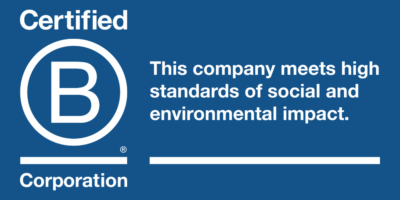Q4 2023 Market and Strategies Update
2023 Review
The past year presented a series of challenges for the financial markets, yet it concluded on a note of resilience and growth. Throughout 2023, we witnessed a complex landscape, marked by a gridlocked Congress in January, a banking crisis in March, concerns over a government shutdown during the summer, and a war in the Middle East this fall. Despite these challenges, the S&P 500 Index, propelled by the performance of the seven largest stocks in the market, now dubbed the “Magnificent 7,” experienced sustained growth over the year. Much of this growth was fueled by prospects and advancements in the field of artificial intelligence. In contrast, the broader stock and bond markets exhibited relative stagnation for most of the year until a significant upturn in November. This late-year rally, buoyed by the Federal Reserve’s (the “Fed”) actions and messaging in November, played a crucial role in pushing the broader markets to close the year in positive territory.
Fed-tabulous
Prior to the Fed’s November decision to keep rates steady, expectations of future rate cuts resulted in long-term bond yields falling from 5% to 3.84%, and bond prices increased by nearly 6%, as measured by the Bloomberg US Aggregate Bond Index. The Fed’s outlook played a crucial role in rescuing the bond market from another negative year, after suffering its worst three-year return in the last century ending Q3 2023.
In addition to its decision to keep rates steady, the substantial market rally in the final two months can also be attributed to the Federal Reserve’s strategic messaging, hinting at potential rate cuts in 2024. This approach fostered confidence in the market that the Fed could engineer a soft landing for the economy rather than force it into a recession in its fight to cool inflation. In prior letters, we asserted our belief the economy would slow in 2024, a hypothesis supported by the inverted yield curve and weak leading economic indicators. While a slowdown is still a possibility, given the improving inflation outlook and a more accommodative Fed stance, we are happy to stand corrected and now believe the odds of a slowdown are fading.
2024 Outlook
The adage “Don’t fight the Fed” resonates on Wall Street, suggesting that positive investment returns are more likely when the Fed adopts an accommodative stance. We are at the beginning of a potential accommodation right now and expectations lean towards positive markets in 2024. The decline in oil prices has reduced operational costs for many businesses and eased inflationary pressures, fostering a more conducive environment for economic growth. Additionally, the downtrend in mortgage rates is revitalizing the housing market, encouraging investments and consumer spending. Perhaps most significantly, the robust employment scenario, characterized by strong job creation and low unemployment rates, is bolstering consumer confidence and spending power.
Each year introduces its unique mix of challenges and opportunities, and 2024 is no different. While the exact trajectory of 2024’s economic course remains uncertain, historical resilience and adaptability of the economy give us confidence in its long-term potential.
Riverwater ESG / Sustainable Investing Update – Why We ESG
As a fiduciary, Riverwater must consider all factors that have the potential to impact long-term investment returns. These include environmental, social, and governance (ESG) factors, precisely because the risk/opportunity posed by the ever-changing environment and society have the potential to materially (negatively or positively) impact individual business profitability and ultimately portfolio returns.
“ESG” (or Sustainable Investing or Responsible Investing or Thematic Investing or Impact Investing or . . .) comes in many flavors. It is essential for investors to have a clear understanding of their investment manager’s specific approach on ESG to ensure alignment with their own investment expectations and values.
At Riverwater, we integrate consideration of ESG factors alongside traditional investment factors when evaluating companies and funds for inclusion in portfolios. We exclude industries that, in our view, are not essential for global prosperity. Simultaneously, we favor companies whose businesses by their very nature offer a societal or environmental benefit. Our commitment to sustainability extends beyond selection; we engage in active partnership with portfolio companies and investment managers toward improvement on material ESG factors. Furthermore, we collaborate with various ESG thought leaders to inform our practice. Our holistic approach is fundamental to our mission: To make the world a better place by growing wealth through sustainable investing.
As always thank you for your trust and confidence.
All the best,
Adam Peck, Founder and CIO
Disclosures: The information contained within this market and strategies update represents the opinion of Riverwater Partners and should not be construed as personalized or individualized investment advice.
- Riverwater Sustainable Value Strategy
- Riverwater Micro Opportunities Strategy









